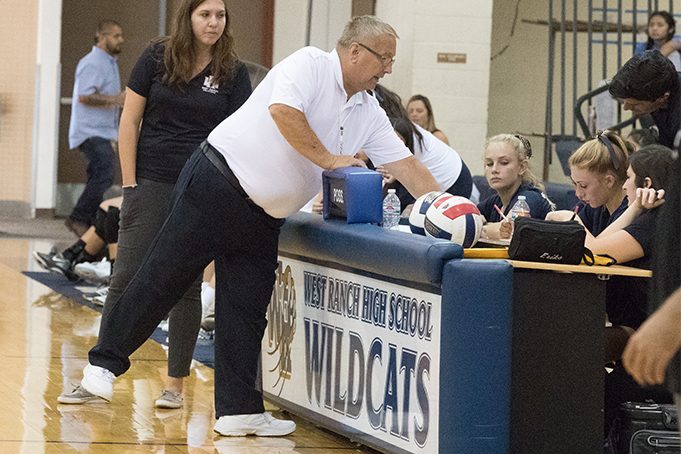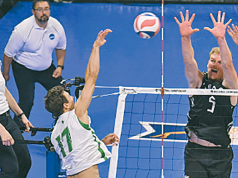During our careers, each of us is bound to hear those irritating words shouted by parents or spectators or a team, “The score is wrong!” It doesn’t matter the level of play. It happens to all of us.
At first, you frantically start looking at the scoreboard trying to remember what the score was at the end of the last rally. Then your focus quickly shifts to the scorer’s table to see if there is any indication of an issue. And then you glance at your partner for some kind of confirmation as to whether there’s a problem.
There are two simple things that can help avoid that potential disaster: 1) Looking at the scoreboard after each rally must become part of your normal routine or habit, and 2) Being alert to the situations that most often result in the score being recorded incorrectly.
Watch each point go on the scoreboard. While that may seem simple, until a scoring mistake occurs, you may not realize you aren’t watching the points being posted on the scoreboard or flip score. That can often happen during tournament situations at the end of the day when your focus starts to wander. By developing the habit of seeing each point post on the scoreboard, you’ll be amazed at how you can prevent scoring problems.
It takes little finesse to incorporate that into your end-of-rally routine. You still need to center with the second referee while going through the signal sequence, and you also need to become aware of how quickly the scoreboard operator awards the points. It’s important to remind the scoreboard operator during your prematch instructions that a point should not be posted on the scoreboard until you actually award the point. Sometimes the board operator will think he or she knows what just happened to end the rally, so they’ll post the point without looking at the referees.
Now that the rally has ended, go through your signal sequence with your partner, and immediately glance at the scoreboard. You’ll often be able to see the points change. Another option is to glance at the scoreboard prior to every beckon for service. As long as you remember what the score was for the last rally, you’ll know whether a subsequent point was awarded to the right team. If you notice an error, address it before you start the next rally. If you aren’t certain the score is correct, ask your partner to quickly check it.
Awareness of problem situations.
Cell phone use can be a distraction and cause problems during a match. As part of your prematch instructions with the scoring crew, remind them that they shouldn’t use cell phones or send text messages during the match.
Sometimes a player falls into the table and scatters papers in the process. It’s important that you allow the scoring crew enough time to get resituated after one of those plays, and the second referee needs to make sure that recording the point wasn’t missed as the scoring crew scrambled out of the player’s way.
A replayed rally is another opportunity for a scoreboard error. The second referee should turn to the scoring crew after a replay is awarded to remind them that no point is being awarded. Likewise, a mind change by the referees should be the same kind of red flag. Often, the scoring crew will see the referee award the point after the initial decision, but they may not realize the referee subsequently changed the call upon learning that the line judge signaled a touch.
Miscommunication among the officiating team can also lead to errors. Referees occasionally award points to the wrong team, only to quickly make a correction. A lesser-experienced scorer may miss that correction. A few extra seconds for clear communication now can save a long delay later in the set.
What's Your Call? Leave a Comment:
Note: This article is archival in nature. Rules, interpretations, mechanics, philosophies and other information may or may not be correct for the current year.
This article is the copyright of ©Referee Enterprises, Inc., and may not be republished in whole or in part online, in print or in any capacity without expressed written permission from Referee. The article is made available for educational use by individuals.


















